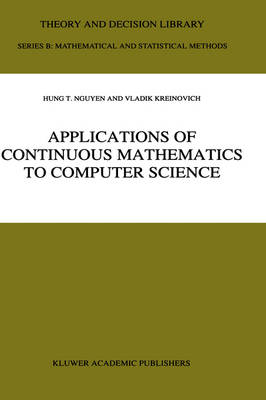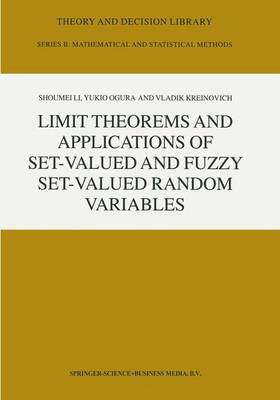Theory and Decision Library B
2 primary works
Book 38
Applications of Continuous Mathematics to Computer Science
by Hung T Nguyen and V. Kreinovich
Published 31 October 1997
This volume is intended to be used as a textbook for a special topic course in computer science. It addresses contemporary research topics of interest such as intelligent control, genetic algorithms, neural networks, optimization techniques, expert systems, fractals, and computer vision. The work incorporates many new research ideas, and focuses on the role of continuous mathematics.
Audience: This book will be valuable to graduate students interested in theoretical computer topics, algorithms, expert systems, neural networks, and software engineering.
Audience: This book will be valuable to graduate students interested in theoretical computer topics, algorithms, expert systems, neural networks, and software engineering.
Book 43
Limit Theorems and Applications of Set-Valued and Fuzzy Set-Valued Random Variables
by Shoumei Li, Y. Ogura, and V. Kreinovich
Published 31 October 2002
After the pioneering works by Robbins {1944, 1945) and Choquet (1955), the notation of a set-valued random variable (called a random closed set in literatures) was systematically introduced by Kendall {1974) and Matheron {1975). It is well known that the theory of set-valued random variables is a natural extension of that of general real-valued random variables or random vectors. However, owing to the topological structure of the space of closed sets and special features of set-theoretic operations ( cf. Beer [27]), set-valued random variables have many special properties. This gives new meanings for the classical probability theory. As a result of the development in this area in the past more than 30 years, the theory of set-valued random variables with many applications has become one of new and active branches in probability theory. In practice also, we are often faced with random experiments whose outcomes are not numbers but are expressed in inexact linguistic terms.

